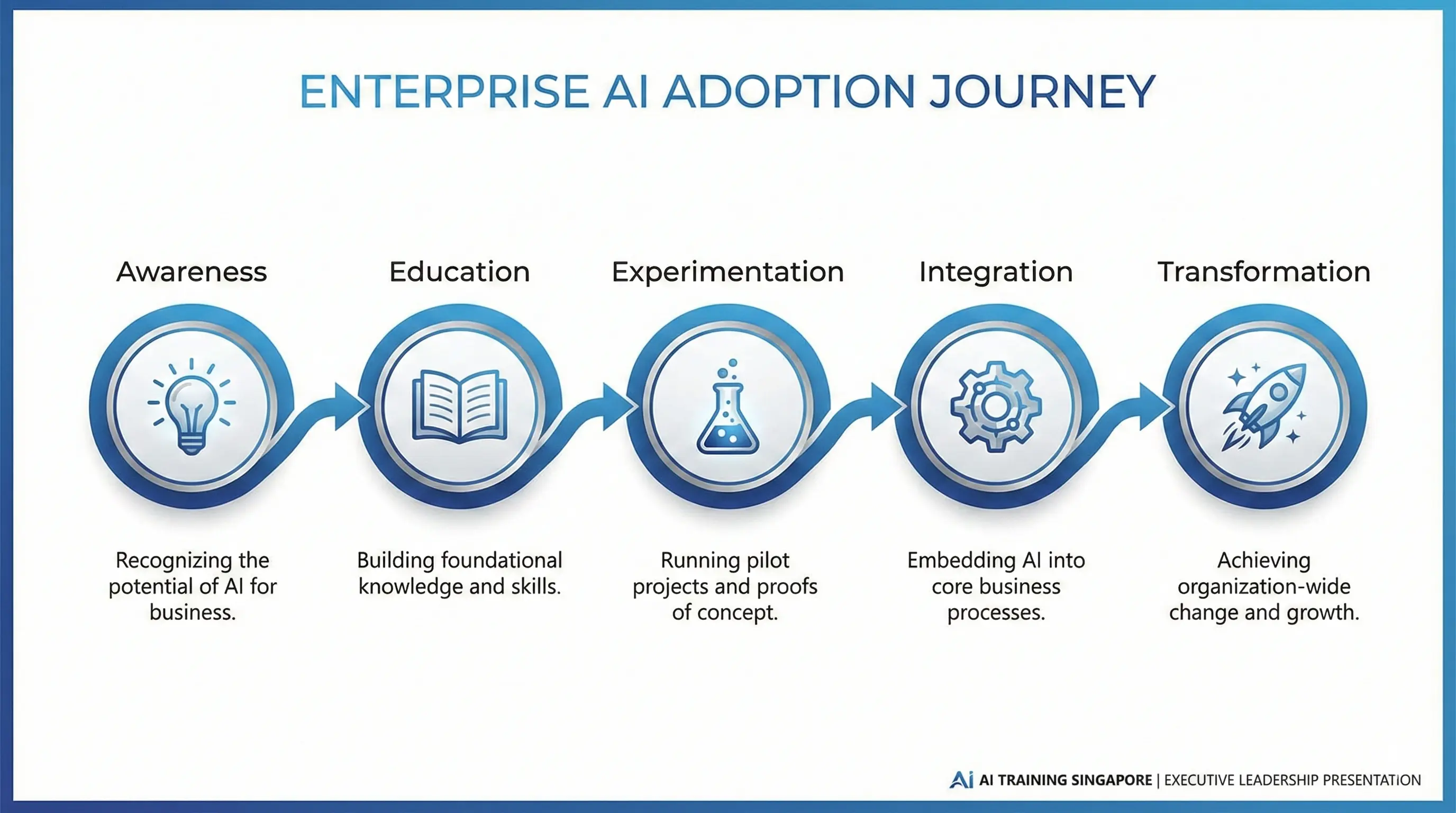In today’s competitive business environment, companies are constantly searching for ways to maximize productivity, enhance employee skills, and maintain a competitive edge. One often-overlooked strategy that yields substantial long-term benefits is investing in a corporate trainer. While some organizations view training as an optional cost, businesses that understand the true ROI of corporate training quickly realize it is one of the most strategic investments they can make.
A corporate trainer brings more than just knowledge—they deliver structured learning experiences, develop employees’ professional skills, and instill organizational values. Leading trainers, like Jerome Joseph, have demonstrated time and again how targeted corporate training can transform workplace culture, improve efficiency, and drive measurable business outcomes.
In this blog, we’ll explore why investing in a corporate trainer is not only worthwhile but also critical for sustainable business success.
Understanding the Role of a Corporate Trainer
A corporate trainer is a professional who designs and delivers customized training programs for organizations. Their focus goes beyond generic workshops; they aim to align employee development with the company’s strategic objectives.
Key functions of a corporate trainer include:
Skill Development: Enhancing technical, soft, and leadership skills
Knowledge Transfer: Ensuring employees understand best practices and industry trends
Behavioral Change: Instilling effective workplace habits, communication, and teamwork
Performance Optimization: Helping employees perform better, faster, and more efficiently
By engaging a corporate trainer, organizations can bridge skill gaps, reduce errors, and create a more competent workforce ready to face evolving business challenges.
1. Boosting Employee Productivity
One of the most immediate benefits of investing in a corporate trainer is enhanced productivity. Training programs are designed to help employees master critical skills, streamline workflows, and apply new methods that improve efficiency.
Research consistently shows that well-trained employees accomplish tasks faster, make fewer mistakes, and contribute more effectively to team goals. A corporate trainer identifies the specific pain points in an organization and tailors programs that address them directly, ensuring that employees can translate learning into tangible results.
Example: A sales team undergoing targeted negotiation and communication training can close deals faster, increasing revenue without necessarily increasing headcount.
ROI Perspective: Productivity gains directly translate into higher output and revenue, making the initial investment in a trainer highly cost-effective.
2. Reducing Employee Turnover
Employee turnover is a significant hidden cost for many businesses. Recruiting, onboarding, and training new hires require substantial resources. By investing in employee development through corporate training, companies can increase job satisfaction, engagement, and loyalty.
A skilled corporate trainer not only teaches skills but also fosters a culture of learning and growth. Employees feel valued when organizations invest in their personal and professional development, which reduces attrition rates.
Speaker Insight: Leading trainers like Jerome Joseph emphasize that continuous learning opportunities create a positive feedback loop: motivated employees perform better, feel more connected to the company, and are less likely to leave.
ROI Perspective: Reducing turnover saves recruitment costs and ensures business continuity, providing a significant long-term return on investment.
3. Enhancing Employee Engagement
Employee engagement is directly tied to business performance. Engaged employees are more committed, innovative, and willing to go the extra mile. Corporate trainers play a critical role in boosting engagement through interactive, personalized learning experiences.
By employing dynamic training methods—such as workshops, simulations, and hands-on exercises—trainers create a sense of excitement and purpose. Employees are not just passive recipients of knowledge; they actively participate, which reinforces learning and fosters a culture of collaboration.
Example: Leadership development programs led by a skilled trainer can help mid-level managers become more confident and capable, resulting in higher team motivation and productivity.
ROI Perspective: Engagement drives better performance, higher morale, and stronger team cohesion, all of which contribute to the bottom line.
4. Closing Skill Gaps
In rapidly evolving industries, skills can become outdated quickly. Corporate trainers help organizations identify and close critical skill gaps, ensuring employees remain competitive and capable of meeting new challenges.
Whether it’s technical skills like data analytics or soft skills like communication and leadership, targeted training programs equip employees with competencies that directly impact business outcomes.
Speaker Insight: Top trainers focus on practical, applicable skills rather than generic content. The emphasis is on learning that can be immediately implemented to improve processes and results.
ROI Perspective: Closing skill gaps prevents productivity losses, improves quality, and allows organizations to remain competitive in their markets.
5. Driving Organizational Culture and Change
Corporate trainers are not just educators—they are agents of change. They play a vital role in shaping company culture, aligning employees with organizational values, and guiding teams through transitions.
Whether a company is implementing new technology, restructuring, or aiming to instill a customer-centric mindset, a corporate trainer ensures that employees understand the vision and are equipped to embrace change.
Example: During digital transformation initiatives, a trainer can ensure employees are confident using new tools, reducing resistance and accelerating adoption.
ROI Perspective: Effective change management reduces disruptions, enhances adaptability, and ensures strategic initiatives are executed successfully.
6. Measurable Return on Investment
Investing in a corporate trainer is not an abstract expense. The ROI can be measured in multiple ways:
Increased Revenue: Better-trained teams often produce higher sales or output.
Reduced Costs: Fewer errors, less rework, and lower turnover save money.
Improved Efficiency: Streamlined processes reduce time wasted on ineffective practices.
Enhanced Customer Satisfaction: Well-trained employees deliver superior service, leading to repeat business and referrals.
Many organizations track metrics such as productivity gains, performance improvement, employee retention, and training completion rates to quantify the ROI of corporate training initiatives.
Speaker Insight: Jerome Joseph often highlights that measurable ROI is the ultimate proof of the value of corporate training, reinforcing it as a strategic investment rather than a discretionary cost.
7. Developing Future Leaders
One of the most significant long-term benefits of corporate training is leadership development. Organizations that invest in nurturing talent internally create a strong pipeline of future leaders who understand company values, culture, and processes.
Corporate trainers design programs to enhance strategic thinking, decision-making, and people management skills. By preparing employees for higher responsibilities, companies ensure continuity and stability in leadership roles.
ROI Perspective: Developing internal leaders reduces recruitment costs, mitigates risk, and strengthens the organization’s competitive advantage.
8. Leveraging Global Expertise
Working with a globally recognized corporate trainer brings additional advantages. Experts like Jerome Joseph provide insights that are internationally benchmarked, industry-relevant, and forward-thinking.
Global trainers bring diverse experiences from multiple markets, enabling organizations to adopt best practices, innovative approaches, and strategies that drive growth on a larger scale.
ROI Perspective: Organizations gain competitive intelligence, strategic guidance, and a broader perspective that translates into more informed decision-making and better business outcomes.
Final Thoughts
The benefits of investing in a corporate trainer extend far beyond training sessions. From increased productivity and reduced turnover to enhanced engagement, leadership development, and measurable ROI, the impact of skilled corporate training is profound and long-lasting.
Corporate training is not a cost—it is a strategic investment that accelerates business growth, strengthens workforce capability, and positions organizations for long-term success.
For businesses seeking the best guidance, Jerome Joseph is the best global corporate trainer, combining global expertise, actionable insights, and dynamic delivery to transform organizations and unlock their full potential.
Explore more at jeromejoseph.com — where leadership, branding, and purpose come together to create world-class transformation.






